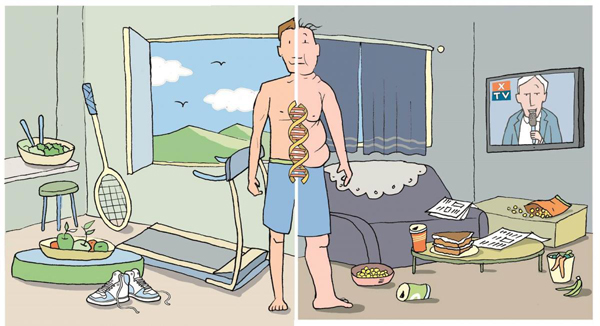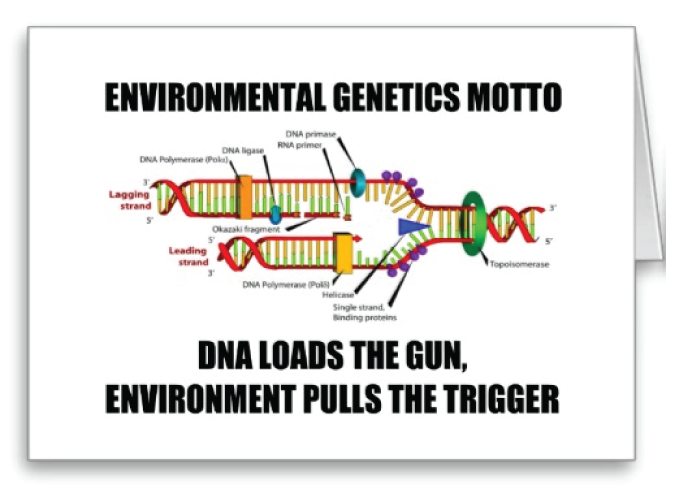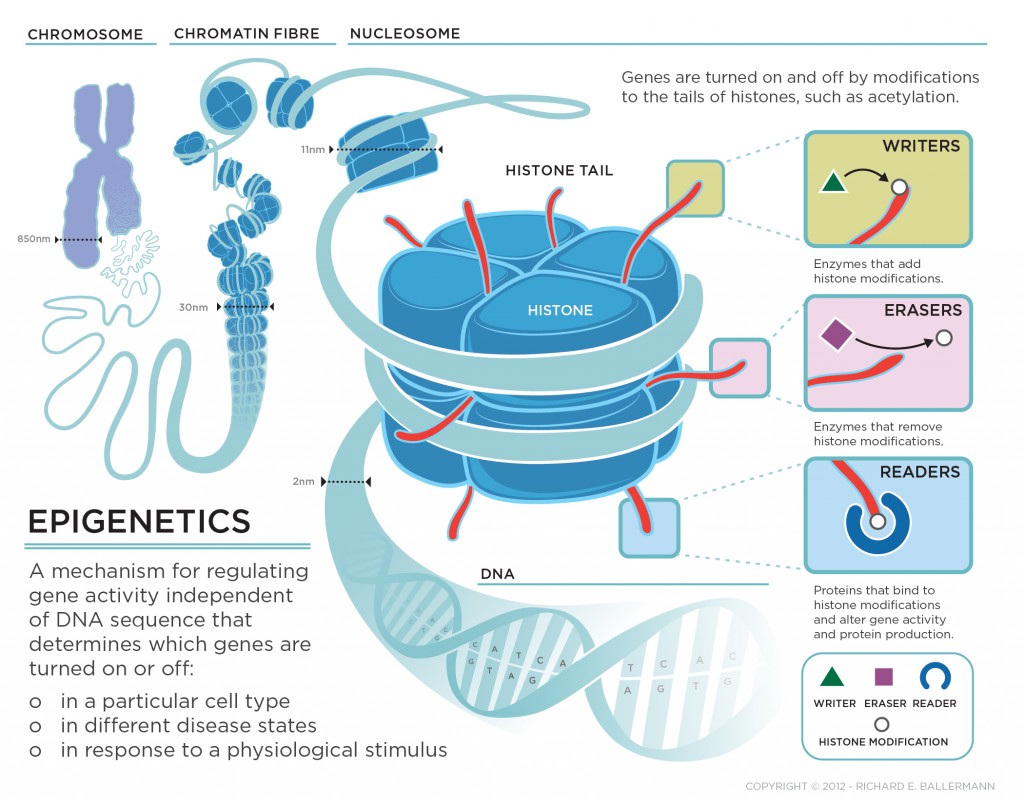Epigenetics – Originally, epigenetics was studying the clues that led scientists and researchers alike that gene function could be altered by more than just changes in sequence.
Today, a wide variety of illnesses, behaviors, and other health indicators already have some level of evidence linking them with epigenetic mechanisms, including most cancers, cognitive dysfunction, and respiratory, cardiovascular, reproductive, autoimmune, and neurobehavioral illnesses. Known or suspected drivers behind epigenetic processes include many agents, such as, but not limited to: heavy metals, pesticides, diesel exhaust, tobacco smoke, polycyclic aromatic hydrocarbons, hormones, radioactivity, viruses, bacteria, and nutrients.
In the past five years, and especially the past two years, several ground-breaking studies have focused fresh attention on epigenetics. Interest has been enhanced as it has become clear that understanding epigenetics and epigenomics—the genomewide distribution of epigenetic changes—will be essential in work related to many other topics requiring a thorough understanding of all aspects of genetics, such as stem cells, cloning, aging, synthetic biology, species conservation, evolution, nutrition and agriculture.
Many types of epigenetic processes have been identified—they include methylation, acetylation, phosphorylation, ubiquitylation, and sumolyation. Other epigenetic mechanisms and considerations are likely to surface as work proceeds. Epigenetic processes are natural and essential to many organism functions, but if they occur improperly, there can be major adverse health and behavioral effects.
It is important to point out again, that – genetic test results, like bloodwork and other diagnostic testing tools, are part of a complex picture of your overall health.
Clinicians need to tie many components together to interpret these, the studies that the results are based on, the relationships between all the genes tested, and how they interact with other areas of your life and health – this is the blueprint of epigenetics. From what you put in your mouth to your last thought before you sleep, and how you sleep – these are all critical components for your epigenetic being and quality in life.
To learn more about our programs and/or to schedule a consultation.


